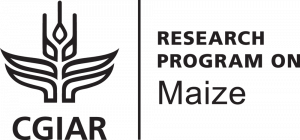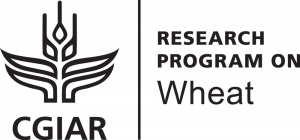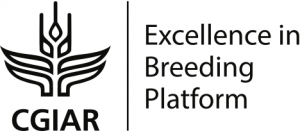CGIAR Research Programs and Platforms


Comprehensive, science-based solutions with parallel positive impacts for farmers, consumers, and the environment were a hallmark of research for development in 2020 under the CIMMYT-led CGIAR Research Programs on Maize (MAIZE) and Wheat (WHEAT). Scientific advances were all the more remarkable by their impact during a year marked by COVID-induced health, workforce and field research challenges.
WHEAT research partners generated scientific evidence that led to policy changes in India, encouraging smallholder farmers to adopt climate-smart farming practices such as zero tilling, the Happy Seeder, earlier planting and precision nutrient management. These changes could, in the future, benefit around 14 million smallholders with extra production, providing around $1.3 billion additional revenue, while reducing around 3.4 million tons of CO2e greenhouse gas each year.
A farm management approach developed by MAIZE partners, now incorporated in extension programs in countries from western Africa to South Asia, uses comprehensive integrated pest management to control fall armyworm, focusing on indigenous natural enemies, host plant resistance, and environmentally safer pesticides. Under good agronomic management, this approach allows farmers to recover their crop after a fall armyworm invasion, safeguarding their income and avoiding environmentally harmful pesticides. MAIZE developed and announced 48 new varieties across Africa, Asia and Latin America in 2020, as well as three new hybrids with native genetic resistance to fall armyworm for uptake by partners in eastern and southern Africa.
A comprehensive study of MAIZE impacts in sub-Saharan Africa shows that 60% of all maize varieties released between 1995 and 2015 in the region have known or reported CGIAR parentage. In 2015, the aggregate yearly economic benefits of using CGIAR-related maize varieties released after 1994 were estimated to be between $660 million and $1.05 billion.
Under WHEAT, scientists estimated the annual gains in grain yield of CIMMYT’s High Rainfall Wheat Trials – CGIAR-derived wheat grown by national partners around the world – from 2006 to 2017. They found 3.8% annual genetic gains in the high rainfall environment (compared to 1.17% in local varieties), and 0.93% in low rainfall (compared to 0.73%), benefiting farmers on around 61 million hectares of wheat farmland.
A CGIAR-commissioned review of WHEAT found it has “a track record of delivering local solutions with a global perspective” and its work is “essential” to meet the rising global demand for wheat.
Likewise, a MAIZE Phase II review determined that MAIZE “uniquely fills a gap at the global and regional level.”
As both CGIAR Research Programs enter their final year, their achievements and impacts will serve as the foundation for future CGIAR research on essential cereal crops and cropping systems that are affordable, accessible, climate-resilient, an often-overlooked source of nutrition, and widely eaten by the world’s most vulnerable populations.
For more information about MAIZE and WHEAT innovations, outcomes and impacts, please use the CGIAR results dashboard.
The CGIAR Research Program on Maize (MAIZE) receives Windows 1 & 2 support from the governments of Australia, Belgium, Canada, China, France, India, Japan, Korea, Mexico, the Netherlands, New Zealand, Norway, Sweden, Switzerland, the United Kingdom, the United States, and the World Bank.
The CGIAR Research Program on Wheat (WHEAT) receives Windows 1 & 2 support from the governments of Australia, Belgium, Canada, China, France, India, Japan, Korea, Mexico, the Netherlands, Norway, Sweden, Switzerland, Turkey, the United Kingdom, the United States, and the World Bank. The International Center for Agricultural Research in the Dry Areas (ICARDA) is a primary research partner.

In a year of global challenges, CGIAR Excellence in Breeding (EiB) pushed forward with modernizing CGIAR and national agricultural research systems (NARS) breeding.
EiB described over 320 market segments and 120 breeding pipelines; led development of new breeding KPIs; launched shared genotyping services; and supported major operations upgrades through assessments, continuous improvement processes, breeding simulation use, a program costing process, and more. Integrated data management advanced to the next level and EiB developed a new model for collaboration between CGIAR and NARS. Meanwhile partners showed progress on delivering higher genetic gain and varietal turnover in market-focused products.
EiB is set to continue maximizing the full potential of Crops to End Hunger (CtEH) investments, helping partners meet six funder requests, and leading the One CGIAR transition.
For more information, visit excellenceinbreeding.org